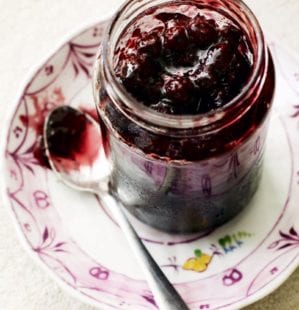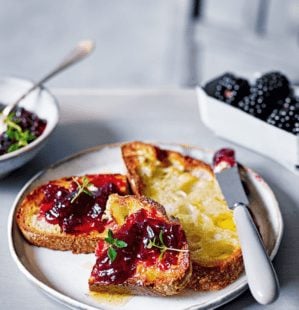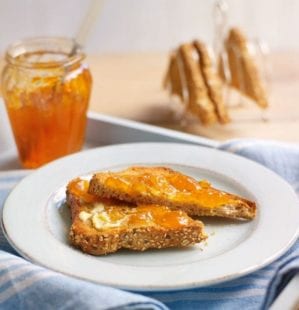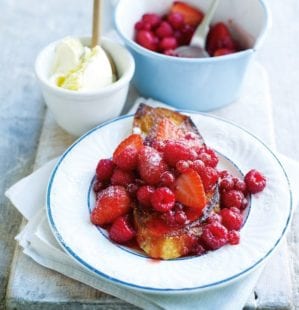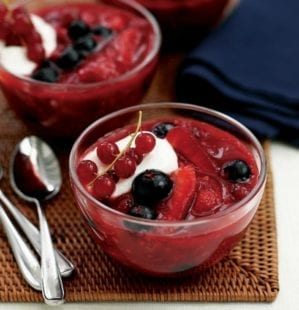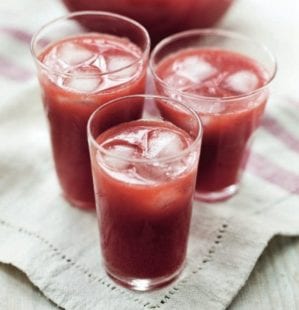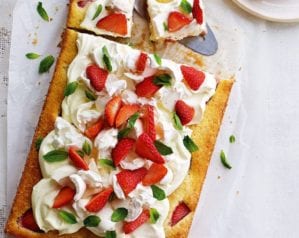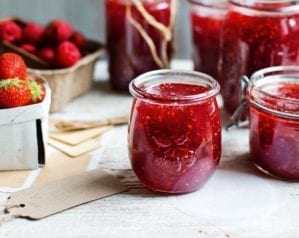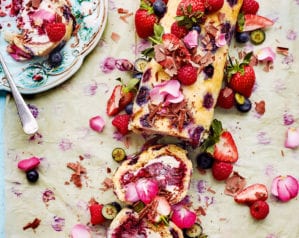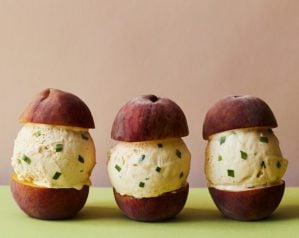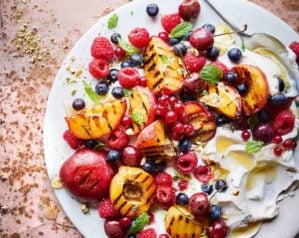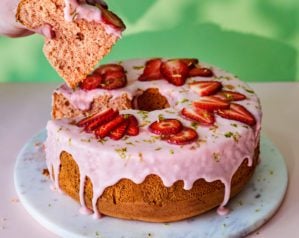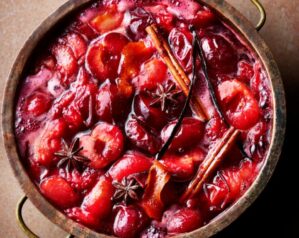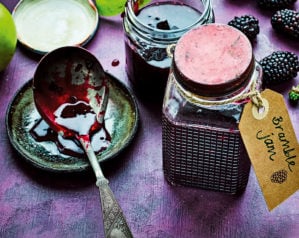
Summer berry jam
- Published: 30 Jun 14
- Updated: 18 Mar 24
Making jam is the best way to bottle your sunshine for over the winter. Follow our tips to perfect this challenging recipe every time.
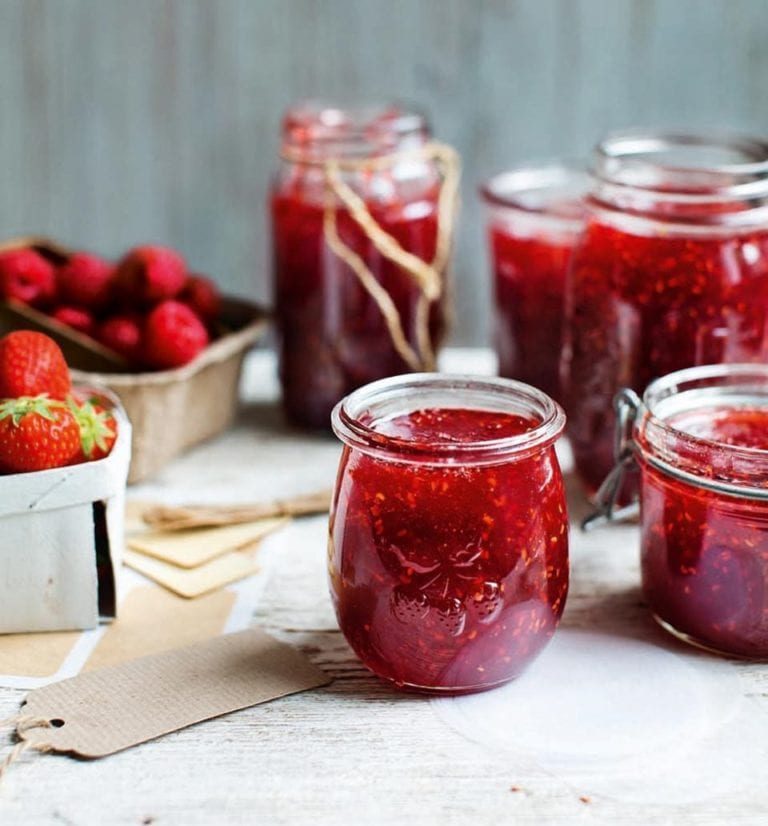
Looking to make jam in the autumn months? How about trying our blackberry jam, instead
.
-
Makes about 1.5 litres
-
Hands-on time 30 min, plus macerating and cooling
Ingredients
- 500g strawberries, hulled and halved if very large
- 500g raspberries
- 900g jam sugar
- Juice 1 lemon
You’ll also need
- Large preserving pan
- Jam/sugar/digital thermometer
- 6 sterilised jam jars or small kilner jars
- Ladle
- Jam funnel or narrow-spout jug
- 6 wax discs and jam covers or lids to seal the jars, from Lakeland
Method
- Put all the berries in a large preserving pan with the jam sugar and lemon juice. Leave to macerate for at least 15-20 minutes, stirring occasionally with a wooden spoon and gently squashing the berries (see tip). This will help the sugar to dissolve and draw the juices out of the berries. Put a couple of small plates in the freezer ready for testing the set of the jam.
- Put the preserving pan over a low heat and warm gently until all the sugar has dissolved.
- Increase the heat and bring the mixture to a vigorous boil. Test the temperature with a jam or digital thermometer – when it reads 105°C, you can test the set of the jam. (It should only take 3-4 minutes to get there but, depending on how vigorous your boil and the size of your pan, it may take up to 10-15 minutes.) The bubbles should become larger and rise to the surface more slowly, and the jam should look a bit thicker.
- Remove the pan from the heat and spoon a small amount of jam onto a cold plate from the freezer. After a few seconds, push your finger through it – if it wrinkles up around your finger it has reached setting point. If not, return the jam to the heat and boil for a minute more, then repeat the wrinkle test on another cold plate from the freezer.
- Once the jam is ready, leave it in the pan off the heat for 10 minutes, then skim off any scum that rises to the surface.
- Ladle the hot jam into still-warm sterilised jars using a jam funnel or use a narrow-spout jug. (Take care as the jam will be scalding hot.) Once filled, lay a wax disc (wax-side down) on the surface of the jam, then, while the jars of jam are still hot, seal with a lid or top with a jam cover. Leave to cool completely, then label and store in a cool dark place.
- Recipe from July 2014 Issue
Nutrition
- Calories
- 13kcals
- Fat
- nil
- Protein
- nil
- Carbohydrates
- 3.2g (3.2g sugars)
- Fibre
- 0.1g
- Salt
- nil
delicious. tips
To prevent sugar crystals: Allow the sugar to completely dissolve over a very low heat before bringing it up to the boil. If sugar is heated too quickly it can crystallise and, once formed, sugar crystals are very difficult to re-melt – especially when you have other ingredients in the pan, too.
To prevent jam being underset or overset: Take the pan off the heat to test the set of the jam. If it’s still bubbling away while you spoon it onto the chilled plate, it may overcook. Remember, you can always put the jam back on the heat if it’s not quite ready. Note also that a long, slow boil may destroy the pectin and produce a runnier set – cook the jam at a brisk rolling boil.
Check the berries are clean and free of dirt. But avoid washing them if you can – strawberries absorb water easily and excess water in the jam can dilute the pectin, making the set more difficult to achieve. If you must wash them, do so under cold running water but dry thoroughly with kitchen paper before using.
If you have lots of fresh picked fruit and little time, freeze measured quantities in perfect condition to make jam at a later date.
Strawberries are low in pectin (a natural gelling agent), but raspberries contain a little more. Adding lemon juice, which is high in pectin, helps to turn the jam from runny to thickened. Add a little more if you’re worried about the jam not setting properly.
They may sound similar, but jam sugar and preserving sugar are not interchangeable. Unlike preserving sugar, jam sugar has added pectin so is best used when making jam with lower-pectin fruit (such as strawberries and raspberries).
You can vary the berries in the recipe if you like, but make sure you stick to the same total weight. If you’re increasing the size of the batch, you’ll need to boil the jam for longer.
Buy ingredients online
Rate & review
Rate
Reviews
Subscribe to our magazine
Food stories, skills and tested recipes, straight to your door... Enjoy 5 issues for just £5 with our special introductory offer.
Subscribe
Unleash your inner chef
Looking for inspiration? Receive the latest recipes with our newsletter

